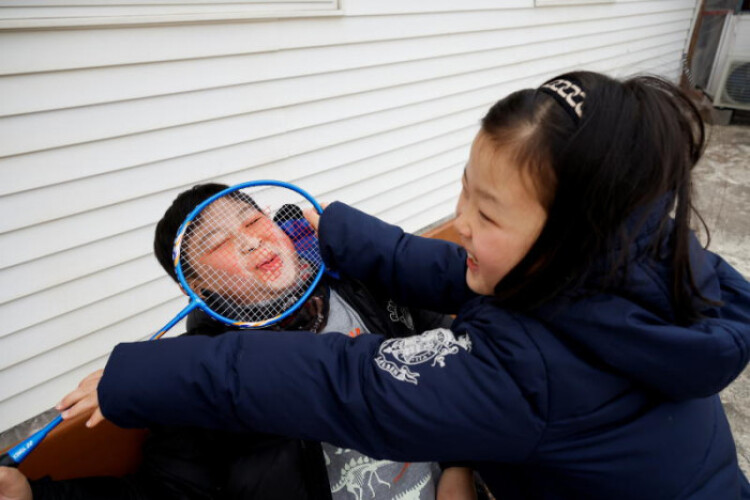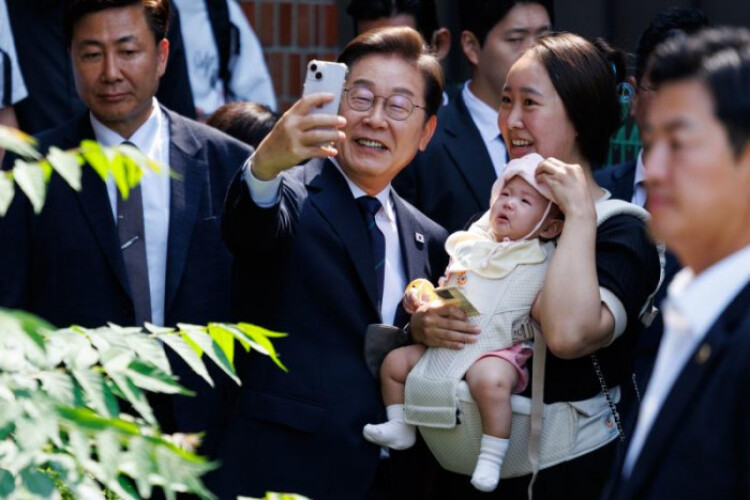
SEOUL - South Korea will start allowing families to hire foreign nannies as the nation grapples with the world’s lowest birth rate.
A lack of affordable childcare is cited as one of the top concerns among working parents. To address this, the government has given visas to 100 Filipino nannies, who will start working on Tuesday.
South Korea suffers from the world’s lowest fertility rate of 0.72 children per woman. Successive governments have sunk 380 trillion won (US$284 billion) in incentives to boost fertility, according to the National Assembly Budget Office research. But the situation has not improved, prompting President Yoon Suk Yeol’s government to tap foreign nannies.
After the initial phase, the government plans to bring in about 1,200 foreign nannies by the first half of 2025.
But the cost of hiring nannies is seen as a hurdle in making the program appealing to average Korean families. Of the 157 households participating in the first phase, almost 62% are dual-income families and a third reside in the wealthy Gangnam neighbourhood, according to official data.
Children release butterflies during an event in Paju, South Korea, on April 25, 2018. (Photo: Reuters)
Korean households could end up spending about 2.38 million won per month if they hire foreign nannies for eight hours a day, according to the Seoul Metropolitan Government. That is nearly half the average monthly income of Korean households, according to Statistics Korea.
"We are seeing complaints about the cost burden of Filipino foreign domestic helpers," You Hye-mi, senior secretary to President Yoon, told a local radio station in this month. "So, we are trying to explore ways to mitigate an individual household’s cost burden of hiring them."
A lack of affordable childcare is cited as one of the top concerns among working parents. To address this, the government has given visas to 100 Filipino nannies, who will start working on Tuesday.
South Korea suffers from the world’s lowest fertility rate of 0.72 children per woman. Successive governments have sunk 380 trillion won (US$284 billion) in incentives to boost fertility, according to the National Assembly Budget Office research. But the situation has not improved, prompting President Yoon Suk Yeol’s government to tap foreign nannies.
After the initial phase, the government plans to bring in about 1,200 foreign nannies by the first half of 2025.
But the cost of hiring nannies is seen as a hurdle in making the program appealing to average Korean families. Of the 157 households participating in the first phase, almost 62% are dual-income families and a third reside in the wealthy Gangnam neighbourhood, according to official data.
Children release butterflies during an event in Paju, South Korea, on April 25, 2018. (Photo: Reuters)
Korean households could end up spending about 2.38 million won per month if they hire foreign nannies for eight hours a day, according to the Seoul Metropolitan Government. That is nearly half the average monthly income of Korean households, according to Statistics Korea.
"We are seeing complaints about the cost burden of Filipino foreign domestic helpers," You Hye-mi, senior secretary to President Yoon, told a local radio station in this month. "So, we are trying to explore ways to mitigate an individual household’s cost burden of hiring them."










